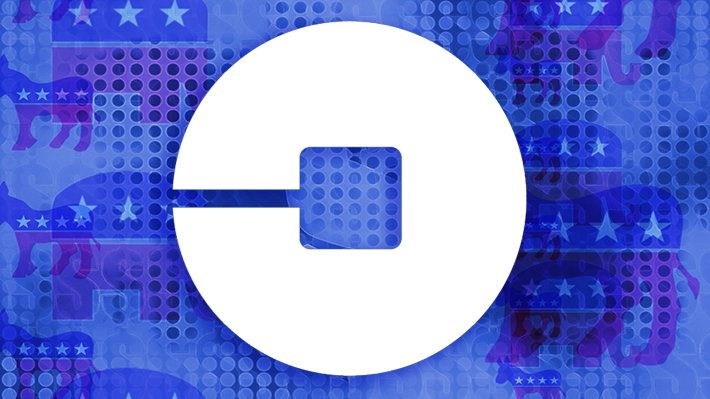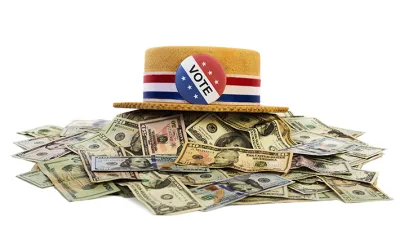
Panel Gives Uber C for “Self-Serving” Endorsement of Nevada Assemblyman
November 1, 2016
A poll asked a panel of business school professors to grade Uber on its first ever endorsement of a political candidate. The panel gave Uber a “C” for its move to support the re-election of republican candidate Derek Armstrong. Uber conducted a mailer and an email campaign encouraging voters to “Uber” to polls and cast their vote for him. Armstrong has been attacked by the Nevada State Democratic Party, which claims that he does not support sufficient criminal background checks for Uber drivers.
A total of 17 professors participated in this edition of the poll. Grades from panelists ranged from “A” to “F.” The average grade, using a standard GPA calculation was a “C.” The grades varied somewhat by the political leaning of the panelist. Grades were highest (C+) for professors who self-reported as falling in the middle of the political spectrum, while grades were in the “D” range for those who reported being either left or right leaning.
“A dominant theme from this poll is that Uber has probably overstepped a boundary,” said Daniel Korschun, associate professor at Drexel’s LeBow College of Business, and lead administrator of the poll. “Stakeholders often support companies that join the political discourse to affirm their values, but when political activity appears to be purely self-serving it arouses suspicion,” he said.
The professors on the panel found Uber’s actions to be somewhat self-serving and even suspect. One anonymous panelist wrote, “It’s cynical, self-interest dressed up as positive politics.” Another said, “Uber is hiding its self-interest in supporting this candidate. The safety issue… could come back to haunt the company if it becomes widely known.” A third questioned the timing of the move, “It’s odd that Uber is making a stance so late in the election cycle in only one state and for just one race. Doesn’t pass the smell test!”
Yet another professor bemoaned the precedent that this appeared to set. “Firms hire lobbyists to fight for their interests, but outright support for a candidate who supports them in return so publicly seems unsavory. Is this the face of modern politics?”
Along with an overall grade, the poll asks panelists to rate the company on four additional dimensions. The panel rated this campaign contribution policy as materially relevant for stakeholders (4.2 on a 1-5 scale). It also gave adequate marks for the consistency of the policy with Uber’s prior actions (3.5). However, the panel finds fault with the company’s transparency (2.7) and gives somewhat lower scores for leadership on the issue (2.6).
Overall, the endorsement may need to be viewed in light of existing perceptions of Uber. As one professor noted, “Uber’s political activism in this case is clearly self-serving. Thus, consumer responses will likely depend on what they think Uber’s “self” is … Those who see Uber as an underdog may view the political activism as a necessary part of “fighting the establishment.” Others may see Uber as another “tech” company that is getting huge and thus may view the political activism as growth-focused opportunism.”
The Real Time Expert Poll © involves a panel of experts hailing from 39 world-renowned universities, including Oxford, Cornell, Columbia, INSEAD, Georgetown, Princeton and University of Pennsylvania. The panel periodically grades companies that take political stands, and also rates those companies on their transparency, consistency and other dimensions. The poll is administered by Drexel’s Institute for Strategic Leadership in partnership with the American Marketing Association.

